I started working for Blue Ventures in 2005 when we were a team of no more than 15, of whom a handful were based out of a small, spare bedroom in north London. With just a few thousand pounds in the bank, we were running on high levels of energy, passion, luck and large bowls of shared pasta at lunch. Now, the organisation has over 200 employees working in 10 countries globally, and significantly more funding. In April this year, I left Blue Ventures as a staff member (although I have now joined the Board of Trustees) and have been reflecting on the five pivotal moments that changed the world for me or the organisation.
From satellite phones to 4G
Nothing is more important to managing an organisation spread across multiple countries and offices than how you communicate, with whom and how often. When I joined in 2005, Blue Ventures (BV) had one office in London and one field site in Andavadoaka, southwest Madagascar. Aside from a prized satellite phone (“satphone”) for emergency phone calls, any other information and a handful of emails were sent via a zipped file of less than a few hundred kilobytes twice a week – using the satphone to generate a signal. That little nugget of data had to carry all the vital information back and forth between UK and Madagascar to keep things running smoothly.
By the end of 2007 you could just about receive mobile reception from the nearest town (Morombe) if you walked 40 minutes or so to stand on the top of the nearest hill (someone had kindly built a little mound of stones to indicate the best spot for reception!). Fast forward to 2009 and Andavadoaka now had its own telecoms mast. In 2012 2G arrived, and by 2016 the quality of the 4G meant that from my desk in London I could have a crystal clear WhatsApp call with my field-based colleagues sitting in their hut during the rainy season.
This rapid communications revolution has had one of the single biggest impacts on how Blue Ventures teams work together and get things done. Sometimes this has been for the better; news of security issues can be passed on quickly, meetings can be organised via phone calls with village leaders rather than letters sent by boat, teams can share and access more information and importantly can talk to their families across countries or overseas more easily. However, with access to 4G comes the flurry of emails and expectations of an immediate response. It’s been important for us all to try to strike the right balance, to ensure that we continue to fully engage with and listen to the fishing communities we serve and live alongside.
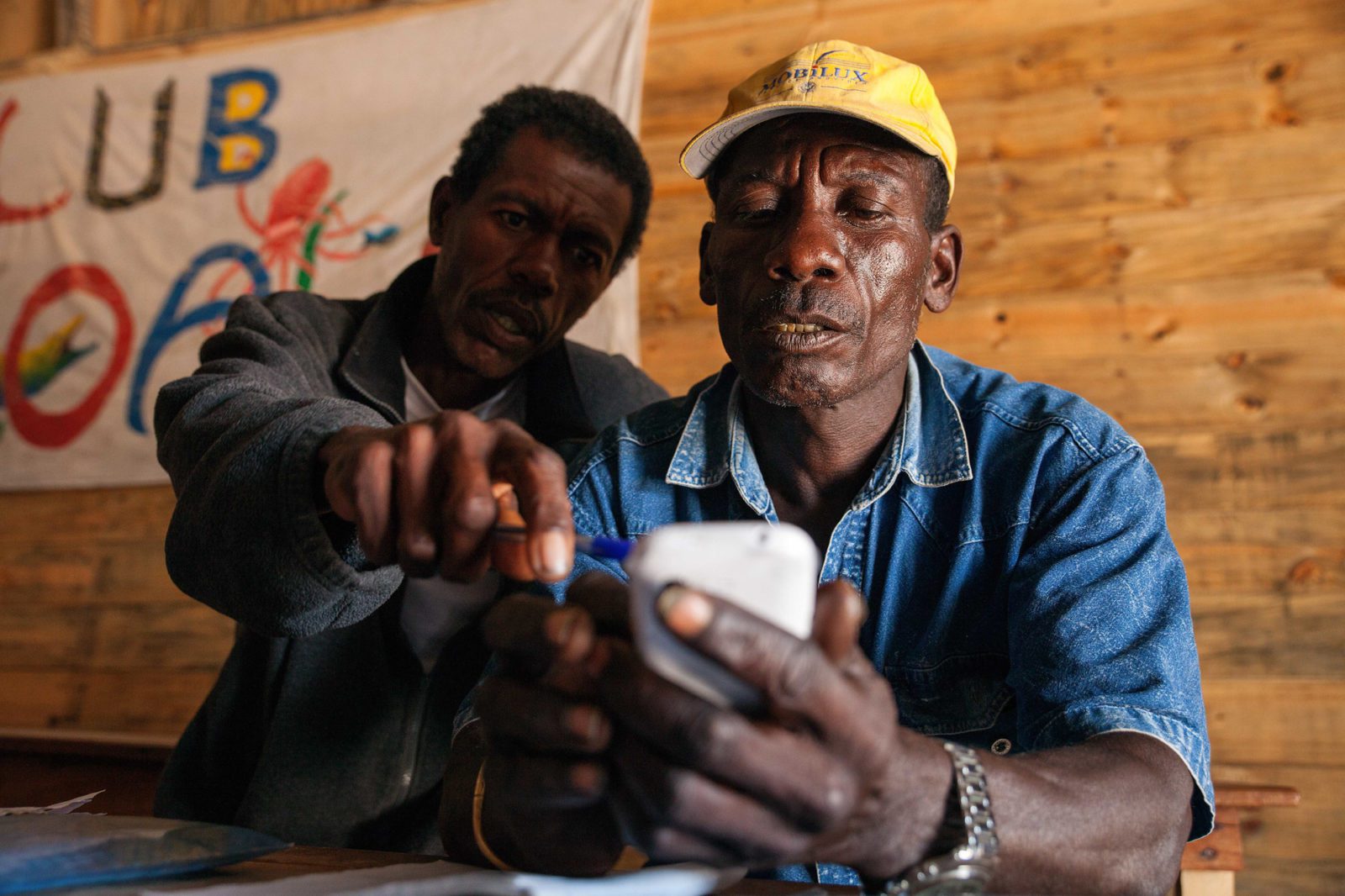
Photo: Garth Cripps
Owning our first car
On my first visit to Madagascar, I soon began to covet the other NGOs’ 4x4s as they zipped neatly between villages. There we were, trundling along in the back of a huge cumbersome truck on the 150 km dirt road that linked Andavadoaka with the provincial capital of Toliara. Groups of staff, and adventurous volunteers returning home from our diving expeditions, normally piled into the truck for the arduous journey which could take us anywhere from 12 to 24 hours, or even longer! Opportunities to travel to Toliara were limited, and everyone hoped the truck wasn’t going to break down in the deep sand at any point. The only alternative was to take a sailboat to the nearest village with public transport (perhaps half a day’s travel if the wind was blowing in the right direction), and the following day jump on the local bus or taxi-brousse to Toliara.
In 2010 we were finally able to purchase our first car, a Ford pickup, which enabled staff to travel with more flexibility (budgets depending!) and comfort – plus it cut travel time to around eight hours one-way. This made a huge difference to those that needed to attend meetings in town on a regular basis as you could be in Toliara by lunch time if you left at sunrise.
Ten years later, I still felt privileged whenever I got to travel in a 4×4; the hours of sitting in a hot, bumpy lorry packed in like a sardine have been ingrained in my memory forever! However, there was also a part of me that cringed slightly as we whizzed through villages in our car that we had once lurched and clattered through at a snail’s pace. This was perhaps linked to the strange feeling of separation that a car window can create as you watch groups of people staring at you drive past.
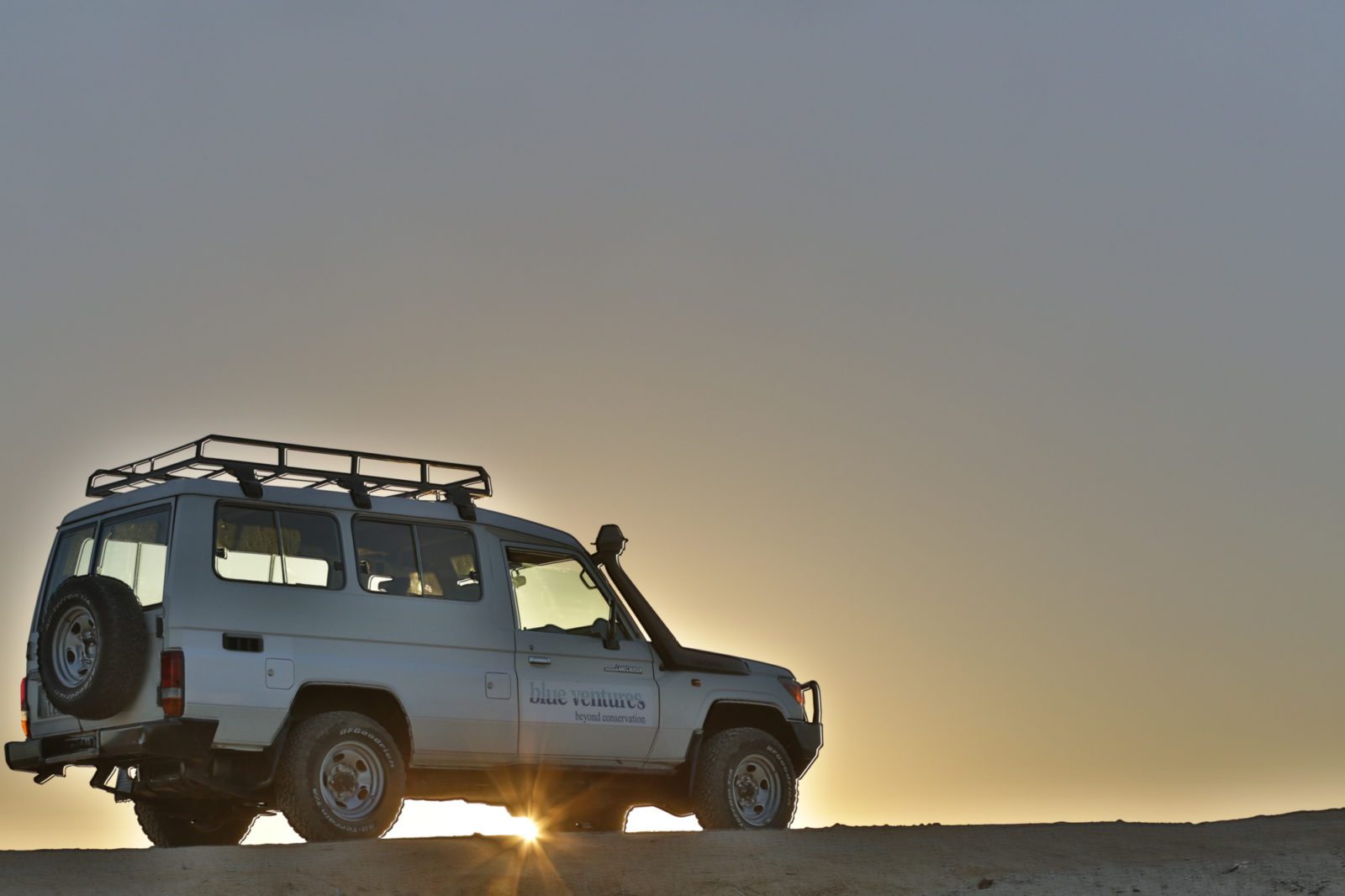
Photo: Gabriel Diamond
Winning our first sizeable grant
Okay, this one may seem a little obvious, but if you want to get things done you need money. As a young and enthusiastic team, working on a shoestring was our specialty. But there comes a point where you need to hire more staff, travel a bit more, buy equipment for an activity and increase the scale at which you can work.
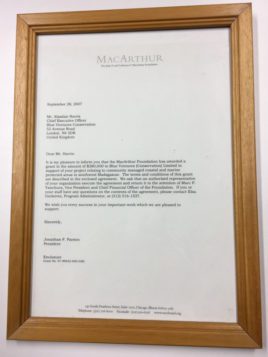
The first MacArthur grant
In 2007, we received our first significant grant and it felt like such a relief after months, if not years, of hard work of applying for larger funding and being rejected. This story will be the same for many organisations. You receive a few small grants of a few thousand dollars; these get you going and you’re excited the first people have believed and invested in you. But to take the next step forward, you need someone to really trust in you, to give you tens or hundreds of thousands, because imagine what you can do with that, seeing what you’ve done with so little up to now.
The fantastic MacArthur Foundation were the first funder to trust BV in this way, and gave us a grant of over $100,000. This grant – whose letter is still framed on the wall of our London office – meant we could finally think longer than a few months ahead, we could plan with security to hire a few more staff and really start investing time and energy into building our activities with the communities of southwest Madagascar.
Each year I was with BV our income steadily grew. Ten years ago we hardly dared to dream we would reach the size we are now (although we’re still small compared to most international NGOs). However, having more funds doesn’t mean you can afford to be less cost effective; spending your funds wisely and striving for ambitious targets should remain paramount. Maintaining a can-do attitude and imagining what we would do tomorrow if we were back to a shoestring budget helps us to focus our work and prioritise goals.
Hiring (and finally being able to afford) a Finance Director
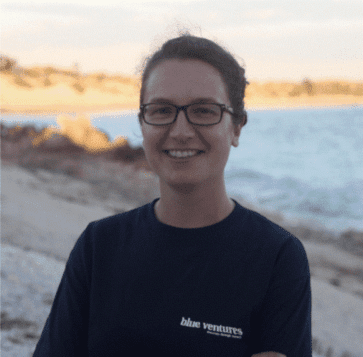
Fran in the field
Whilst I may be unusual in that I found budgets and numbers a fairly soothing part of programme management (problems with a spreadsheet can often be resolved in a day; solving conservation issues can’t!), I’m not a trained accountant. We quickly realised that the style of accounting we’d developed was probably (definitely!) going to start holding us back as an organisation. With our first Finance Director came financial clarity, project balances, and project codes. It was a complete step change in our ability to manage budgets and grants, and to allocate resources.
Sound financial management is obviously a key part of running any successful organisation. Learning to find a place in my heart – and hectic work schedule – for finances, and to cherish my finance team, was a key turning point for me! My advice to anyone reading this is to always take a little bit of time to try to understand what your finance team do – even if it does feel alien and out of your comfort zone. You are more than likely to need to call on their skills and patience!
Losing a friend
I struggled to decide whether to include this. However, for myself and many others at BV, our time has been punctuated by the tragic deaths of several friends and colleagues. For me, the death of Thomas was not only the loss of a close friend but also an exceptional team mate who was integral to BV’s story.
Thomas started working for BV shortly after its inception. When I first went to Madagascar, he introduced me to life in Andavadoaka, was my research partner and let me sail his boat (under his supervision naturally!). Amongst his many achievements he became a proficient scuba diver and scientific surveyor, helped to establish our first ‘replication’ site in Belo sur Mer and had an extraordinary talent for engaging with a community. He had a keen sense of humour and an infectious laugh and, as a healthy, fit young man, his death was unexpected, fast and way before his time.
The BV family has sadly lost a number of friends and colleagues over the years, and many of these losses felt premature and unjust. Living and working in countries with limited healthcare provision and facilities, poorly maintained public transport and roads, and where poverty drives people to put their lives at risk to sail and fish in unsafe conditions – I am constantly saddened by the number of avoidable deaths that happen every year.
While our story is definitely one of success and growth, it has also been shaped by the loss of friends whose memory we all take with us every day. For me, these memories help me to appreciate that how we connect with and value each other is a fundamental part of our mission as a conservation organisation.
With hindsight, it is of course easy to reflect on what we could or should have done faster, quicker or better to have made the journey easier. But as corny as it sounds, this journey has made us the organisation we are today and has shaped our values. The people that work for BV and the people that we aim to serve have been the constant thread on this journey, and as with any organisation, we are only human. But if we ensure our values guide our decisions and we continue to put communities first and value people, then I know we will reach new heights in marine conservation over the next 13 years no matter the challenges we face.
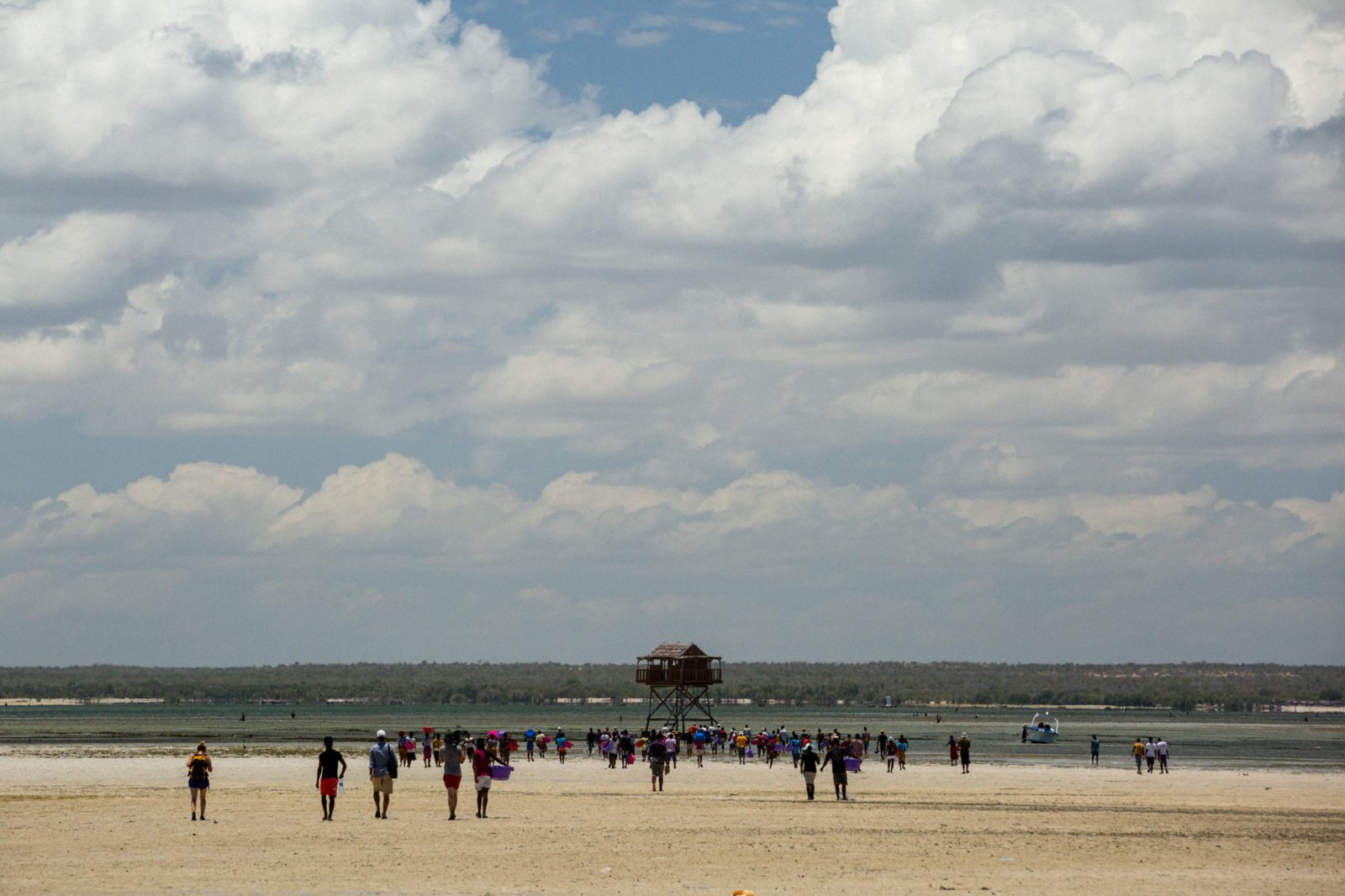
Photo: Garth Cripps
Header image: Ben Honey
Read more from Fran Humber on Conservation Careers: Leaving Blue Ventures and beyond


Having been to Madagascar and seen the level of poverty there, I decided to support BV with a regular donation and am so impressed by the dedication of Fran and all the BV team and the inspiring work you all do.